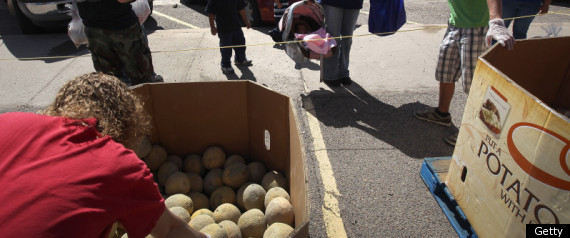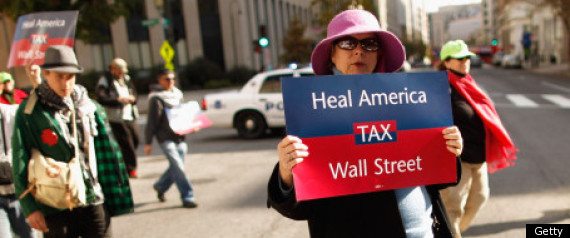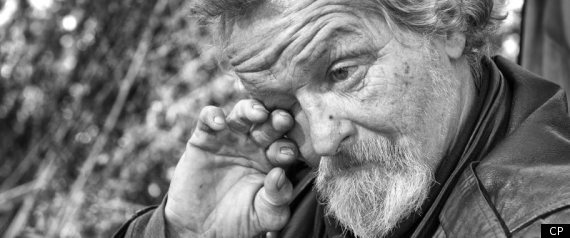
On Saturday a woman died in her tent at Occupy Vancouver and Vancouver's mayor has responded, not by questioning how the city is failing people in need of essential services such as food, housing, mental and physical healthcare, but by threatening legal action to end the encampment. Down the street, witnesses at the Missing Women Inquiry are recalling the deadly failure that resulted from the city using the courts to move other vulnerable group -- sex workers -- out of sight: a move now seen as escalating harm and contributing to deaths.
Can Mayor Robertson invoke safety and security to move the vulnerable residents of Occupy Vancouver to out-of-sight locations where they will again be denied the services they are receiving at Occupy Vancouver?
In Vancouver and in cities around the world, people have gathered collectively to protest conditions that threaten democracy, deny equality and impair survival: the growing gap between the fabulously wealthy and the profoundly poor, the hijacking of government by unaccountable corporate interests and the usurpation of basic rights to life, housing, food, a living wage, equality and non-discrimination, by a ever smaller group of elite profiteers. Protests here and elsewhere are being made by gathering collectively and "taking back" public space. Public spaces are where such political expression takes place. As observed by Justice Huddart in the BCCA Falun Gong decision, "...public streets are, as they have been historically, spaces in which political expression takes place."
In Canada, everyone has the right to engage in peaceful public protest of government action or inaction on issues of public concern. In instances -- such as the present one -- where impugned government actions are causing severe damage, the right to protest arguably becomes a duty.
The use of public space for political expression and protest can only be legitimately limited in order to prevent harm to others -- not a factor evidenced or reasonably predicted here. Occupy Vancouver didn't cause or create the harm that led to the death of the woman or the overdose. Rather they are protesting harmful and inequitable conditions that make death and injury to the most vulnerable inevitable. At Occupy Vancouver volunteers provide essential services not provided by the city: meals available 17 hours per day; medical services around the clock; toilet facilities on site, and perhaps most importantly, a community that values the participation of marginalized people. Undoubtedly, particularly as the temperature drops, vulnerable street youth and homeless people are safer at the Vancouver Art Gallery than elsewhere.
Removal of the tents from the public square on the north side of VAG would deny the Occupy Vancouver people their Charter-protected right to publicly protest and to engage in public education and debate on the quickening erosion of the most basic freedoms. It would also expose the vulnerable residents of Occupy Vancouver to greater harm. The mayor and city council ought to be providing solutions, not seeking to use the law to impose greater harm on the most helpless members of our community.
Origin
Source: Rabble.ca  More than 10,000 protesters surrounded the White House on Sunday calling on President Obama to reject the proposed Keystone XL tar sands oil pipeline from Canada to the Gulf Coast. The protest came exactly a year before the 2012 election, and the pipeline is shaping up to be a major political issue. Last week, President Obama said for the first time he will make the final decision on whether to approve the controversial 1,700-mile pipeline proposed by TransCanada, which would transport oil from the Alberta tar sands fields to refineries in Texas. Up until now, Obama said the final decision rested with the State Department. "[Sunday’s protest] really underlined that this has become not only the biggest environmental flash point in many, many years, but maybe the issue in recent times in the Obama administration when he’s been most directly confronted by people in the street," said leading environmentalist Bill McKibben, a key organizer in the protest.
More than 10,000 protesters surrounded the White House on Sunday calling on President Obama to reject the proposed Keystone XL tar sands oil pipeline from Canada to the Gulf Coast. The protest came exactly a year before the 2012 election, and the pipeline is shaping up to be a major political issue. Last week, President Obama said for the first time he will make the final decision on whether to approve the controversial 1,700-mile pipeline proposed by TransCanada, which would transport oil from the Alberta tar sands fields to refineries in Texas. Up until now, Obama said the final decision rested with the State Department. "[Sunday’s protest] really underlined that this has become not only the biggest environmental flash point in many, many years, but maybe the issue in recent times in the Obama administration when he’s been most directly confronted by people in the street," said leading environmentalist Bill McKibben, a key organizer in the protest.

















